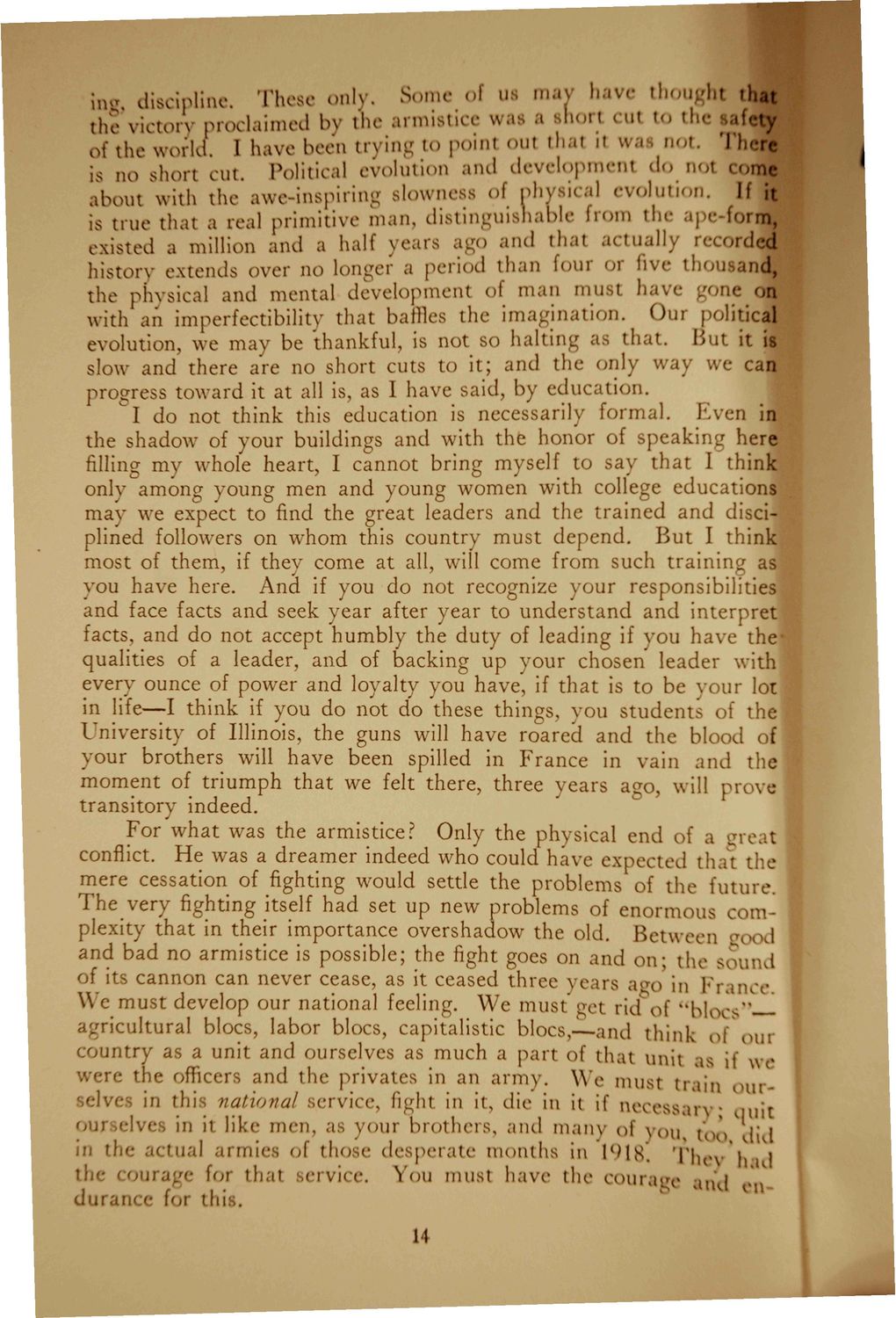| |
| |
Caption: Convocation - 1921 (Armistice Day)
This is a reduced-resolution page image for fast online browsing.

EXTRACTED TEXT FROM PAGE:
inc discipline of the world IS no short CUt These only, Sonic <f us m. > h;i thought thai fcty e the victory proclaimed bv the armisti ! was a short i Ul to the I have been trying to point out that it w.. not, 'I I Politic:!! evolution and development do not come about with the awe-inspiring slowness of physical evolution. If j IS true that a real primitive man, distinguishable from the aj c form existed a million and a half y irs ago and that actually reco history extends over no longer a period than four or live thousand, the physical and mental development of man must ha\ gone OJ have political with an imperfectibilitv that bailies the imagination. Our j evolution, we may be thankful, is not so halting a, that. B ut it is slow and there are no short cuts to it; and the only way we can progress toward it at all is, as I have said, by education. ""I do not think this education is necessarily formal. Even in the shadow of your buildings and with the honor of speaking here filling my whole heart, I cannot bring myself to say that I think onlv among young men and young women with college educations may we expect to find the great leaders and the trained and disciplined followers on whom this country must depend. But I think most of them, if they come at all, will come from such training as you have here. And if you do not recognize your responsibilities and face facts and seek year after year to understand and interpret facts, and do not accept humbly the duty of leading if vou have the qualities of a leader, and of backing up your chosen leader with every ounce of power and loyalty you have, if that is to be your lot in life—I think if you do not do these things, vou students of the University of Illinois, the guns will have roared and the blood of your brothers will have been spilled in France in vain and the moment of triumph that we felt there, three years ago, will prove transitory indeed. For what was the armistice? Only the physical end of a ereat conflict. He was a dreamer indeed who could have expected that the mere cessation of fighting would settle the problems of the future. The very fighting itself had set up new problems of enormous complexity that in their importance overshadow the old. Between ^ood and bad no armistice is possible; the fight goes on and on; the sound of its cannon can never cease, as it ceased three years ago in France We must develop our national feeling. We must get rid of "bloc ricultural blocs, labor blocs, capitalistic blocs,—and think of out ountry as a unit and ourselves as much a part of that unit as if w • the officers and the privates in an army. We must train ourse) in this national service, fight in it, die in it if n e c e s s a r v mil oursel in it like men, as your brothers, and many of you too T I ( J tl Ctual armies of those desperate months in 1 MS. The\ h I th couraj/e for that service. You must have the courage m l uraie tor tins. 11
| |